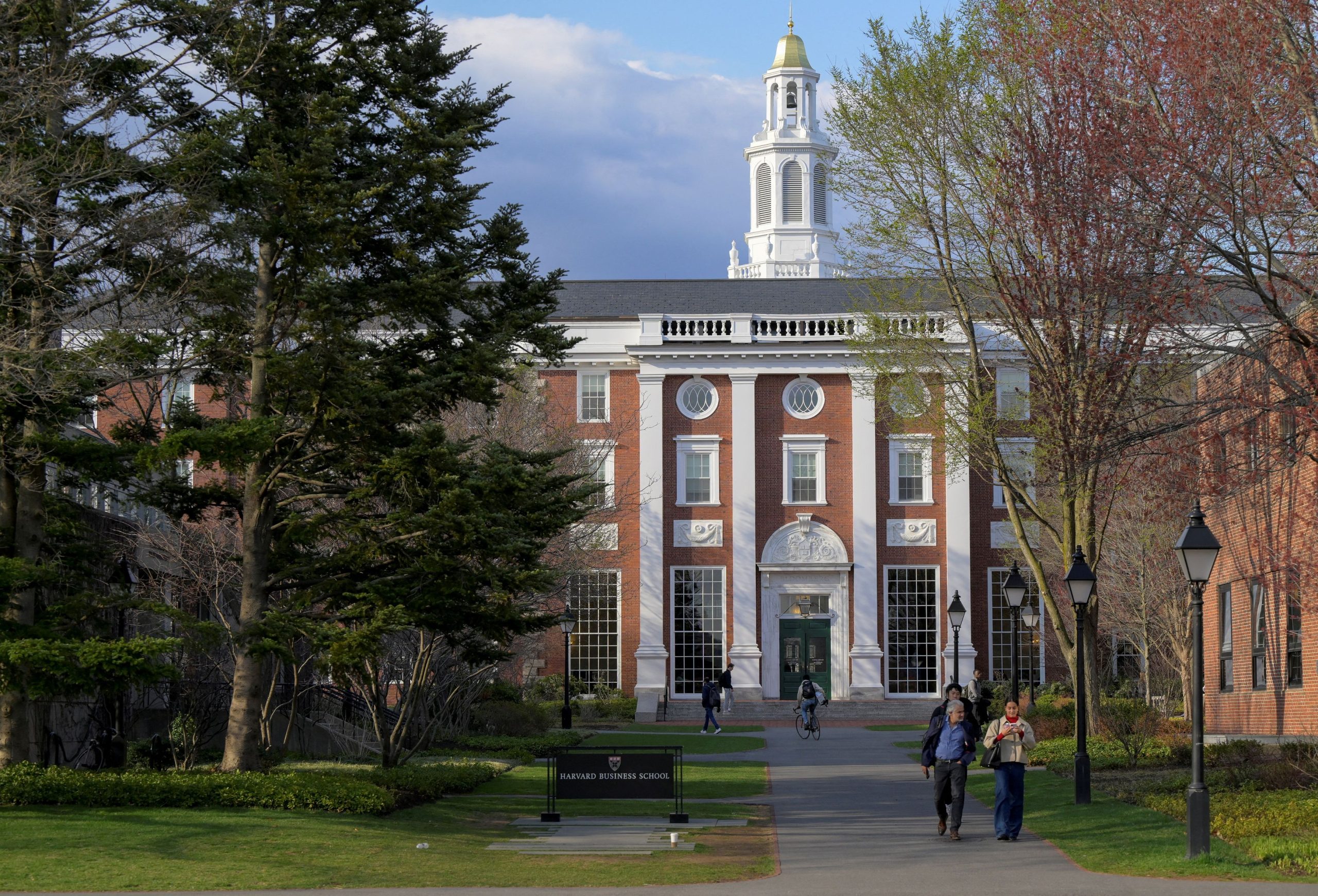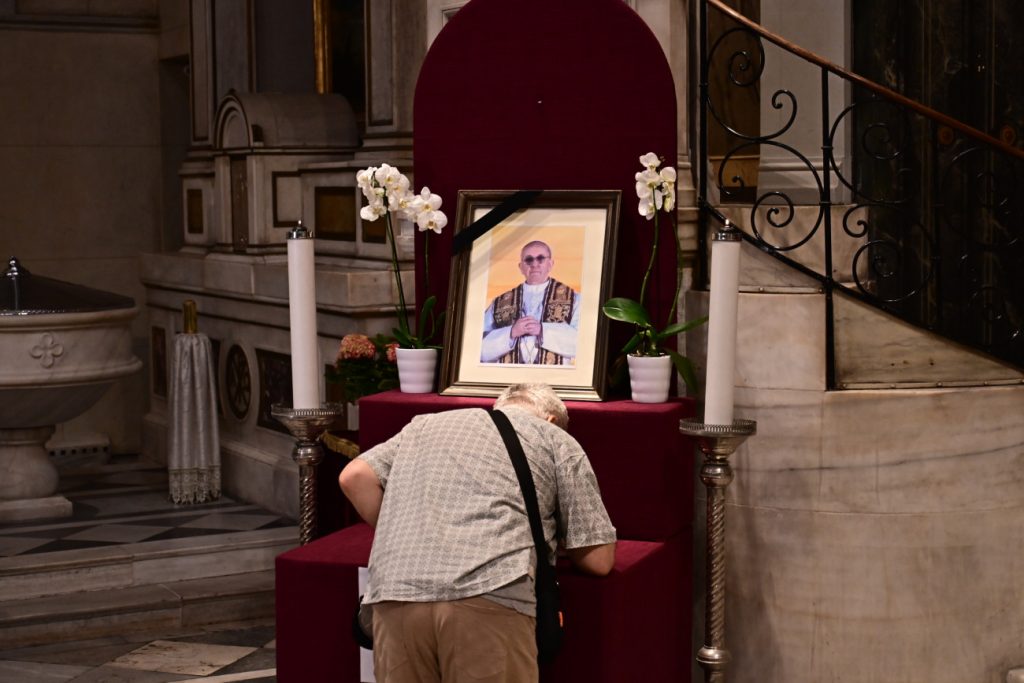Harvard University has drawn a line in the sand against the Trump administration and its sweeping demands for cultural change . Now it is counting on its peer institutions for backup.
In Washington, Republicans say the nation’s wealthiest and oldest university has just made a serious error in judgment and is about to learn the cost of crossing Trump.
The collision between the president and America’s most iconic university had barely begun when it immediately escalated. Trump on Tuesday threatened to withdraw the university’s tax-exempt status, a move that would hit Harvard’s finances far beyond the $2.26 billion in federal cuts the Trump administration had announced Monday night after Harvard’s president said the school wouldn’t bow to a broad list of demands.
Trump’s allies are also vowing to hold the line against the Ivy League university, which has an endowment of more than $50 billion. “I think Harvard got bad advice to take a different approach,” said U.S. Rep. Elise Stefanik (R., N.Y.), herself a Harvard graduate, in an interview with The Wall Street Journal on Tuesday. “But what they don’t realize is the level of seriousness—it is dead serious.”
Now that Harvard has stuck its neck out, it is waiting for support. The institution is working with Ballard Partners, a lobbying firm with close ties to Trump that the university hired earlier this year. It is also leaning on its own team in Washington to reach out to potentially sympathetic Republicans in the administration or in Congress who might be willing to help, according to people familiar with the matter.
The pitch to Republicans, according to a person familiar with the matter: Don’t overreach, this is a private institution.
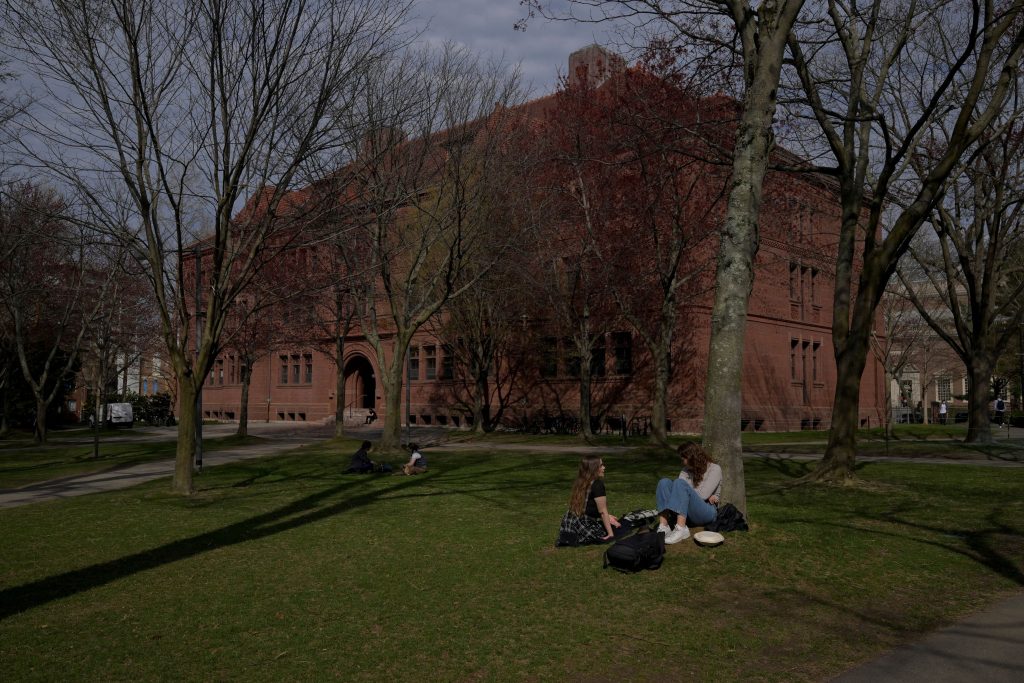
People sit on the grass at the campus of Harvard University in Cambridge, Massachusetts, U.S., April 15, 2025. REUTERS/Faith Ninivaggi
Harvard’s defiance seems to have emboldened Columbia University , which has been in protracted negotiations with the Trump administration to restore $400 million in funding cuts over antisemitism allegations.
Following Harvard’s public stance, Columbia’s acting president, Claire Shipman, told the university community that it will not let Washington call the shots on who Columbia hires or what it teaches.
The university might have to make a difficult decision to secure its future, Shipman wrote, “But we would reject heavy-handed orchestration from the government that could potentially damage our institution.”
The day the Harvard news broke, MIT, Princeton and other universities sued the Energy Department to block cuts to federal research grants the agency said would save $405 million annually. And on Tuesday, Stanford University President Jonathan Levin and Provost Jenny Martinez expressed support for Harvard and vowed to resist Trump.
“Harvard’s objections to the letter it received are rooted in the American tradition of liberty, a tradition essential to our country’s universities, and worth defending,” they said.
The expressions of allegiance have been building for weeks as Trump has scrutinized universities.
“Higher education has been waiting for an institution to take on the Trump administration,” said Teresa Valerio Parrot, a principal at higher-education firm TVP Communications. “It was going to have to be a well-resourced institution with a strong brand.”
Friday-night breakdown
Negotiations between Harvard and the Trump administration began in late March with cautious optimism and a sizable amount of common ground.
Harvard had already spent months making good-faith efforts to quell campus antisemitism and implement structural changes to stop it from rising again. The tactics broadly met the requests that arrived in a letter from a new Trump bureaucratic panel called the Task Force to Combat Anti-Semitism . Both sides wanted to see a mask ban and a winding down of diversity, equity and inclusion in admissions and faculty hiring.
The task force believed Harvard would concede, just as Columbia had , according to someone familiar with the negotiations. And indeed, Harvard’s initial complaints to the task force were that the demands were too vague. Could it have more details?
Late this past Friday, Harvard finally got the real ask—and was shocked by the demands detailed in a five-page letter, according to a person familiar with the negotiations. The list included requirements that Harvard allow federal-government oversight of admissions, hiring and the ideology of students and staff.
The university saw the demands as much stronger than what had been asked of its peers. Harvard leaders felt they had no choice but to respond, the person said, as many of the demands were unacceptable to them.
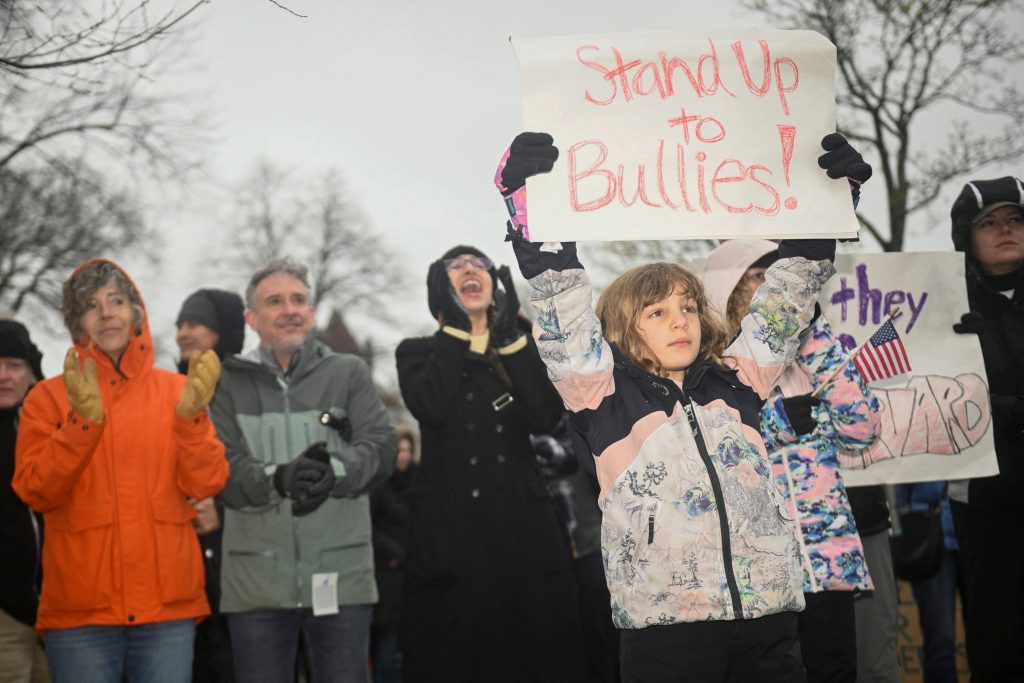
Demonstrators rally on Cambridge Common in a protest organized by the City of Cambridge calling on Harvard leadership to resist interference at the university by the federal government in Cambridge, Massachusetts, U.S. April 12, 2025. REUTERS/Nicholas Pfosi
There was a board meeting on Sunday, the person said, at which the board and its lawyers, scattered around the country, were patched in to discuss the letter. There was no dissension, and full-throated agreement on what they needed to do. The lawyers drafted the letter.
“The demands crossed a series of red lines,” said a different person familiar with the negotiations.
Stefanik said the demands were reasonable for a university that she portrayed as doing too little to protect Jewish students. “They’re pretty common-sense terms,” she said. “It was very straightforward.”
On Monday, Harvard President Alan Garber rejected the administration’s proposal and struck a defiant tone. “Although some of the demands outlined by the government are aimed at combating antisemitism,” he wrote, “the majority represent direct governmental regulation of the ‘intellectual conditions’ at Harvard.”
Within hours, the federal task force to combat antisemitism canceled more than $2 billion in research grants. On Tuesday, Trump made a social-media post threatening Harvard’s tax-exempt status.
By rejecting the administration’s demands, America’s wealthiest university also became the first to fully confront the White House. The decision wasn’t made lightly and came only after scores of alumni and national figures associated with Harvard urged the institution to defend itself and higher education more broadly.
Former Harvard President Larry Summers posed the question: If not Harvard, then which institution? Harvard Law School graduate and former President Barack Obama expressed his concerns during public remarks at Hamilton College.
The demands
Among the demands made in the Friday letter: Harvard would have to hire a third party, approved by the federal government, to audit the student body, faculty, staff and leadership for “viewpoint diversity” and to submit those reports to the federal government by the end of 2025.
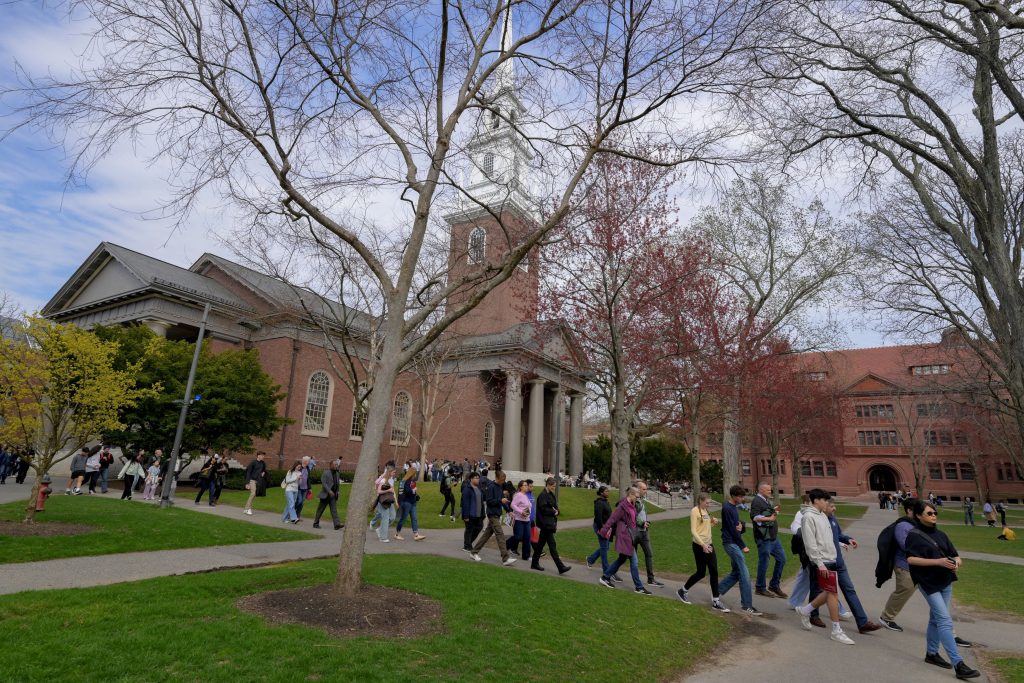
Students walk on the campus of Harvard University in Cambridge, Massachusetts, U.S., April 15, 2025. REUTERS/Faith Ninivaggi
Harvard would be required to share all its hiring and admissions data with the federal government—with the information subjected to government audits—until at least the end of 2028. The admissions data would need to include information about rejected and admitted students, broken down by race, color, national origin, grade-point average and performance on standardized tests.
All existing and prospective faculty would need to be reviewed for plagiarism.
Harvard would have to hire an external auditor to examine the programs and departments the task force said “most fuel antisemitic harassment or reflect ideological capture,” including Harvard’s divinity school, graduate school of education, school of public health and medical school. Harvard would have to reform recruitment, screening and admissions to weed out international students “hostile to the American values and institutions.”
The demands were designed to blow up negotiations, not move the two parties closer to a deal, said Jeffrey Flier, a former dean of the Harvard Medical School and member of the Council on Academic Freedom, which has been working toward expanding viewpoint diversity on campus.
“You can’t suddenly turn a switch and things change overnight,” he said. Many in the Trump administration “have said that they don’t think the institutions can be reformed from within, and they need to be burned down and rebuilt from the edges.”
Write to Douglas Belkin at Doug.Belkin@wsj.com , Meridith McGraw at Meridith.McGraw@WSJ.com , Erin Mulvaney at erin.mulvaney@wsj.com and Sara Randazzo at sara.randazzo@wsj.com
